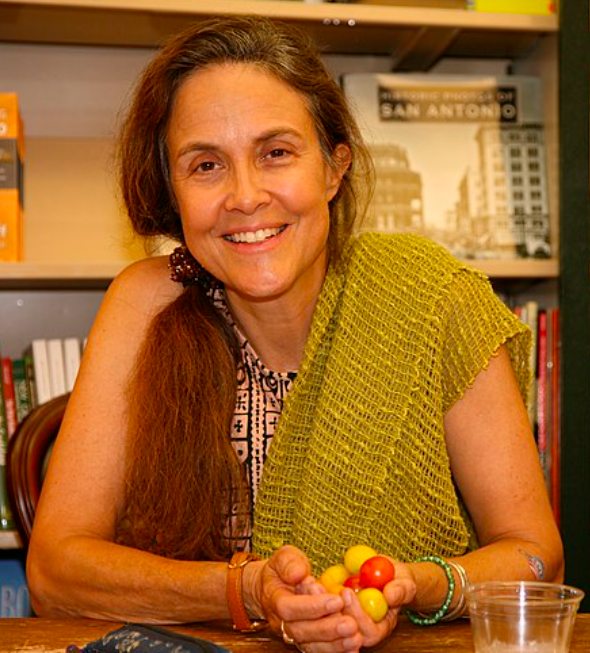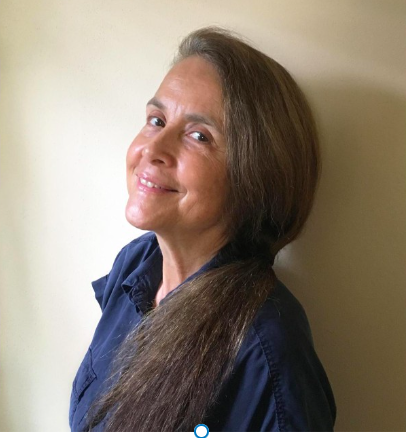Pathbreakers of Arab America: Naomi Shihab Nye

By: John Mason / Arab America Contributing Writer
This is the twenty-sixth in Arab America’s series on American pathbreakers of Arab descent. The series includes personalities from entertainment, business, sports, science, academia, journalism, and politics, among other areas. Our twenty-sixth pathbreaker is Naomi Shihab Nye, a distinguished Palestinian-American poet, essayist, and novelist. She was born in 1952, in St. Louis, Missouri, the daughter of a Muslim Palestinian father and an American mother. Naomi’s childhood was spent mostly in America, though while growing up, she made extended visits to Jerusalem. The duality of cultures she experienced profoundly shaped her perspective and her poetry.
Naomi Shihab Nye, a Palestinian-American poetic voice for peace and identity
Naomi was born on March 12, 1952, to a Palestinian father, Aziz Shihab, who worked as a journalist, editor, and writer, and American mother, Miriam Allwardt Shihab, an artist who worked as a Montessori school teacher. Her father lived his early years in Palestine. He and his family became refugees in the 1948 Nakba when the state of Israel was created. According to Wikipedia’s bio of Arab Americans, Naomi recalled that perhaps as a result of his rapid exit from Palestine, her father “seemed a little shell-shocked when I was a child.” She began her poetry career early, composing her first poetry at age six. Such an early entry to the realm of poetry eventually led to her publication or contribution of over 30 books, including poetry, young-adult fiction, picture books, and novels.
Naomi grew up initially in Ferguson, Missouri, but later moved to San Antonio, Texas. She graduated from Robert E. Lee High School, where she was editor of the literary magazine, followed by graduation with a BA in English and world religions from Trinity University. Except for many visits to Palestine, Naomi has continued to live in San Antonio with her husband, Michale Nye, and son, and currently teaches creative writing at Texas State University. Her first collection of poems, “Different Ways to Pray,” explored the theme of similarities and differences between cultures, which would become one of her lifelong areas of focus. Her other books include poetry collections “19 Varieties of Gazelle: Poems of the Middle East,” “Red Suitcase,” and a young-adult novel called “Habibi” (the autobiographical story of an Arab-American teenager who moves to Jerusalem in the 1970s).
Naomi has won many awards and fellowships, among them four Pushcart Prizes, the Jane Addams Children’s Book Award, the Paterson Poetry Prize, many notable book and best book citations from the American Library Association, and a 2,000 Witter Bynner Fellowship. In 1997, Trinity University, her alma mater, honored her with the Distinguished Alumna Award. In 1997, Naomi became a Guggenheim Poetry Fellow, followed in 2000 by a Witter Bynner Fellowship, awarded by the Library of Congress. Many more awards followed these, including the more recent, 2019-2021 term Poetry Foundation Young People’s Poet Laureate. The Foundation depicted Naomi’s writing style as one that “moves seamlessly between ages in a way that is accessible, warm, and sophisticated even for the youngest of readers.”
An Encyclopaedia Britannica article described Naomi’s writing form as “free-verse poetry that uses everyday life to explore cultural issues and the connections between diverse peoples.” For her, she has said, “the primary source of poetry has always been local life, random characters met on the streets, our own ancestry sifting down to us through small essential daily tasks.” Naomi has donned her cross-cultural hat in representing the U.S. Information Agency’s Arts America program, which advocates for cultural understanding through the arts. Her service has included several trips to the Middle East and Asia.
Embracing Palestinian identity and advocacy through poetry and prose
In celebrating her father’s life upon his death in 2007, Naomi wrote a very touching memorial piece, “There Will Be Peace in the Holy Land.” She depicts her father at certain points in his life; for example, “…he was sure the people would figure it out, understand how to live together, and the Holy City (Jerusalem) would be holy again, for Palestinians, Jews, and Christians all together.” In another instance, Naomi writes, “His family had been thrown out of their middle-class home in old downtown Jerusalem and skedaddled to a West Bank village where my grandmother had inherited a ruin of an ancient house.”
At one point in Naomi’s memorial, she provides another revealing quote by her father: “Jews and Palestinians were more alike than different. They should just share Palestine because, after all, it was very small. If you separate people, things will explode.” Naomi remarked, that my father “was not a politician; he was a journalist.” She described her father as having been “Deeply wounded by exile, but even more wounded by the mistakenly righteous and wrong ideas people transmitted about what had happened in his beloved world, he always considered how many others in the world suffered their exiles.” Furthermore, Naomi’s father had expressed, “Exile was the scar that didn’t heal. Optimists smiled around it, though.” At the end of his life, he shared his optimism about peace in the Holy Land: “There will be peace, because there has always been peace.”

From her own visits to Palestine, quoted in the publication Washington Report on Middle East Affairs, Naomi described odd moments. For example, “while walking in her grandmother’s village with old Palestinian men, she would find Israeli guns pointed at them. “I would say in English to the soldiers, we are not fighting you. We are just out for an evening walk. Why are you doing this?’” She said, “They would be furious and ask to see my passport.”
Naomi writes about her own remembrances of visits to Palestine in her poem, “Jerusalem” – A Poetic Reflection:
Why are we so monumentally slow?
Soldiers stalk a pharmacy:
big guns, little pills.
If you tilt your head just slightly…
In another part of the same poem, Naomi depicts her profound ties to the city in all its cultural, religious and political complexity:
I’m not interested in who suffered the most.
I’m interested in people getting over it.
I’m not interested in a history of blood.
I’m interested in the way bones fill with light.
So, from a history of violence, she sees the possibility of openness and hope emerging out of darkness, letting enlightenment and peace prevail. Naomi feels deeply for the Palestinians, their struggles and their resistance. Her art form thus transforms into a platform for advocacy, aimed at a peaceful resolution to the Israeli-Palestinian conflict. Naomi’s work could not be more relevant and profound given the present raging fires of war now engulfing Palestine and Israel.
Sources:
– “Naomi Shihab Nye,” Wikipedia Biography of Arab Americans,” 2023
–“Naomi Shihab Nye, American poet and children’s author,” Encyclopaedia Britannica, 6/8/2023
– “There Will Be Peace in the Holy Land, (Naomi Shihab Nye homage to her father),” World Literature Today, Summer 2021
– “Naomi Shihab Nye: Portrait of a Palestinian-American Poet,” Washington Report on Middle East Affairs, 8/2006
John Mason, Ph.D., who focuses on Arab culture, society, and history, is the author of LEFT-HANDED IN AN ISLAMIC WORLD: An Anthropologist’s Journey into the Middle East, New Academia Publishing, 2017. He has taught at the University of Libya, Benghazi, Rennselaer Polytechnic Institute in New York, and the American University in Cairo; John served with the United Nations in Tripoli, Libya, and consulted extensively on socioeconomic and political development for USAID and the World Bank in 65 countries.
Check out our Blog here!









